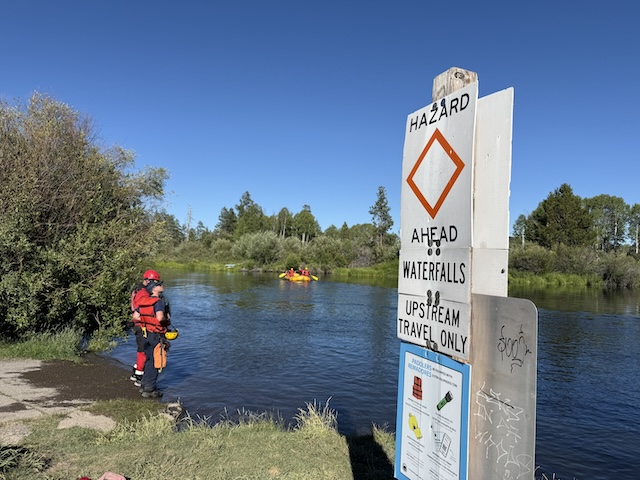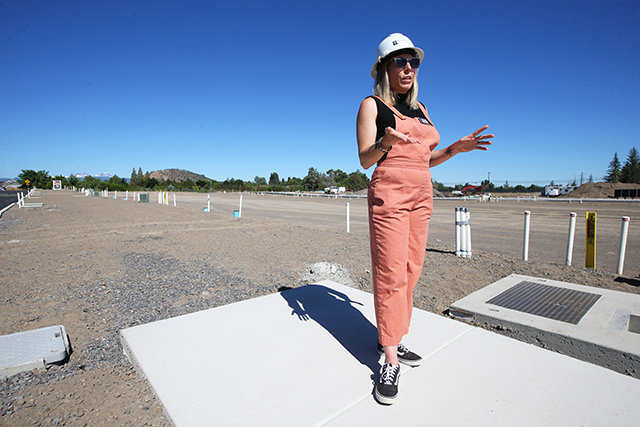Measure 110 is facing reform. Here’s where Central Oregon public safety leaders stand.
Published 5:15 am Wednesday, February 7, 2024

- Stock image
As Oregon lawmakers this month debate reforms to Measure 110 — the state law which decriminalized drug possession — Central Oregon law enforcement leaders argue that drug possession should once again be a crime.
Anything less, they argue, would lack the accountability necessary to ensure people who are addicted to drugs receive treatment.
Trending
“I don’t see it as criminalizing addiction,” said Redmond Police Chief Devin Lewis. “I just think that some people need that extra push to get the help and the treatment they need.”
Some local defense attorneys, however, question whether re-criminalizing drugs is an effective way to curb the state’s ongoing addiction crisis. Criminal charges can hinder many facets of a person’s life, prompting them to relapse and wind up back in the criminal justice system, they say.
Reform, repeal or remain? Measure 110 in Central Oregon
“We’ve been criminalizing the problem for decades,” said Thad Betz, an attorney with the Oregon Justice Resource Center. “And it didn’t work.”
Trending
The Oregon legislative session began Monday, and how best to reform Measure 110, which voters passed in 2020, will be debated by lawmakers.
As the state faces rising overdoses spurred by the influx of fentanyl, a highly-addictive and dangerous opioid, Democrats and Republicans have each offered proposals that would make drug possession a crime.
How precisely the law might change remains unclear. The Bulletin talked to people working in the criminal justice system across Central Oregon to hear what they think lawmakers should do.
Should drugs be re-criminalized?
Measure 110 made most minor drug possession cases a Class E violation, punishable with a $100 fine, and promised to fund treatment and move people toward it.
But that’s not how it worked out, critics say. Since its passage, opponents of the measure have said it worsened crises that involved mental illness, homelessness and addiction.
Oregon’s drug decriminalization has been rocky, but not all agree on what to do about it
Seven Central Oregon law enforcement leaders — from Crook, Jefferson and Deschutes counties — told The Bulletin that drug possession should be reclassified as a Class A misdemeanor, which is punishable by up to a year in jail.
Many of those leaders are calling for public use of drugs to be made a crime, just like the current law prohibiting public use of alcohol and marijuana. In addition, they say, the law for selling drugs should be restored to the way it was before Measure 110, when authorities could charge dealers when there was substantial evidence of a dealing, including large amounts of drugs and cash.
“I think the last few years have shown that we need to make sure there are consequences,” said Lewis, the Redmond Police chief. “And that’s what I think these reforms would offer.”
Some defense attorneys disagree that Measure 110 has made things worse and that re-criminalization wouldn’t help. They argue Measure 110 didn’t directly cause the state’s overdose deaths to rise when compared to states that didn’t decriminalize drugs.
Measure 110 has not made drug use or overdoses worse than in other states, according to a recent study from New York University, the Network for Public Health Law and the Centers for Disease Control and Prevention.
“Measure 110 didn’t cause fentanyl to get flooded into the streets,” said Betz, the defense attorney.
Betz argued that the Measure 110 that advocates proposed — using a share of cannabis revenue for addiction programs and services — has hardly gotten off the ground, thanks to a slow rollout.
“We didn’t even give it a chance to work,” said Betz, who added: “The state screwed it up.”
Did the state do a good enough job connecting people with drug treatment services?
While some officials acknowledge Measure 110 funded essential funding for treatment centers and staffing, many argue that the state was slow to roll out these services.
“I think Measure 110 was a failure,” said Crook County District Attorney Kari Hathorn.
People who did not pay the $100 fine for possession rarely faced punishment, and there was little incentive for people to pursue treatment, Central Oregon law enforcement leaders say. Those who received fines for drug possession were often given a phone number for rehabilitation hotlines. Few used it.
“It’s gotta have some better teeth in it,” said Crook County Sheriff John Gautney.
Nicolas F. Patterson, a Bend-based defense attorney, agrees that a $100 fine is not an effective motivator for people to be moved toward treatment. But he said he is concerned that re-criminalizing drugs could result in an expensive strain on the criminal justice system that the state is ill-equipped to handle.
“Going back to the old system would bring about a lot of injustice,” he said.
Should any aspect of Measure 110 be retained?
Many criminal justice officials agree with the goals in Measure 110 of funding treatment services and supervision.
Deschutes County District Attorney Steve Gunnels said this funding would be critical for people who can’t afford treatment themselves, “which is most people who would be on probation for drug possession.”
Some criminal justice officials called for funding for stabilization centers or for treatment programs in court, which help people with substance use disorders find employment and housing, learn parenting skills and receive treatment, rather than have their cases immediately tried in court. Participants are monitored by a probation officer daily and are held accountable if they falter by using drugs or failing to attend treatment.
“Ultimately, I want folks to improve their lives to reduce contacts with the criminal justice system,” Deschutes County Sheriff Shane Nelson said in a statement. “Oftentimes, people need a legal consequence to encourage them to seek treatment.”
Patterson disagrees.
“We can’t really prosecute and incarcerate our way out of a public health crisis,” he said.








